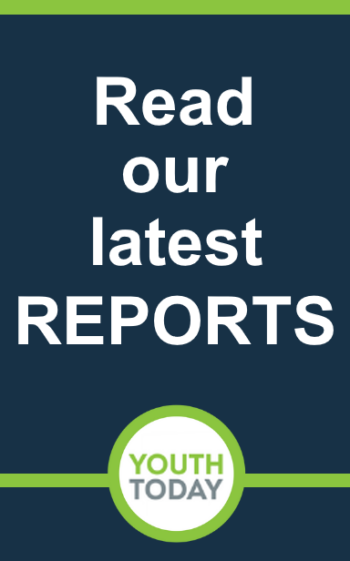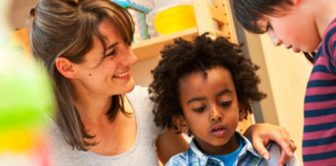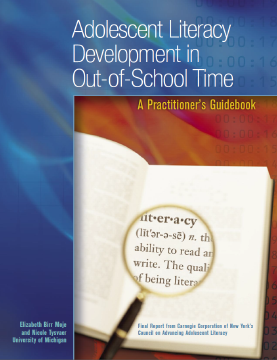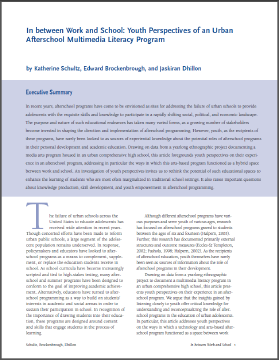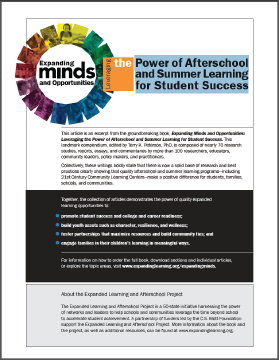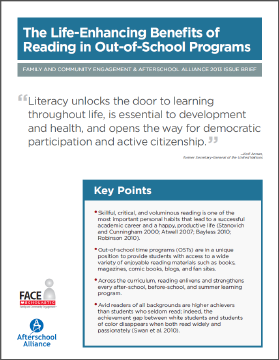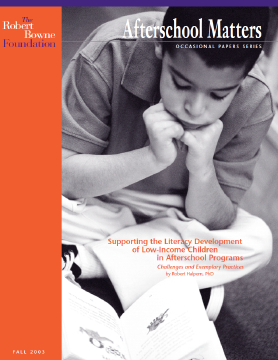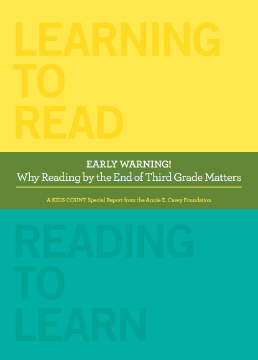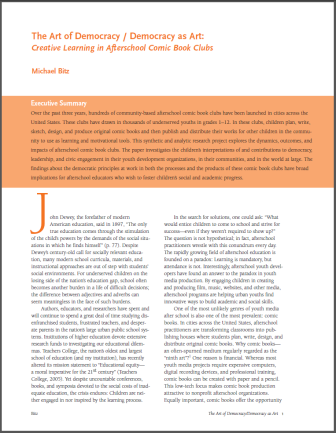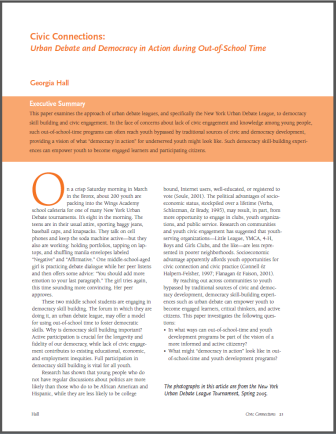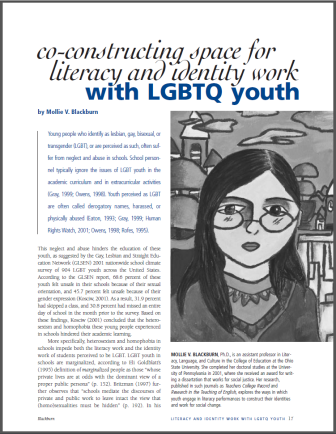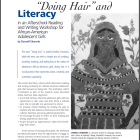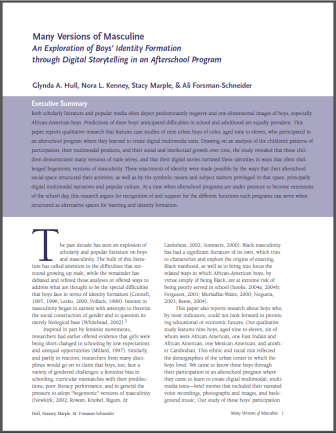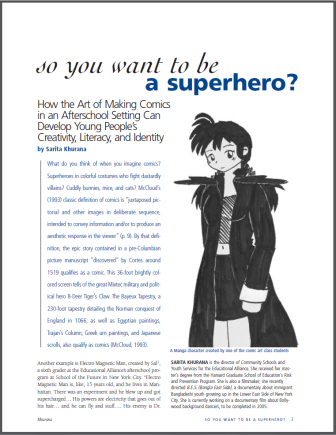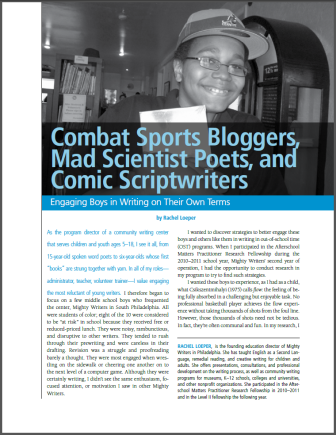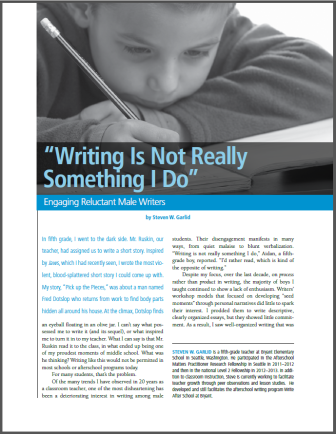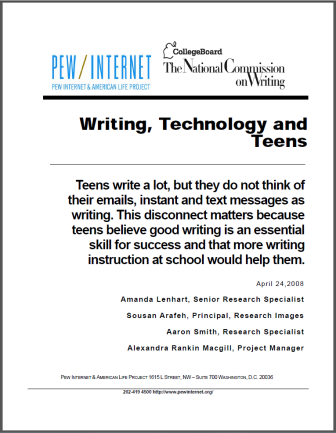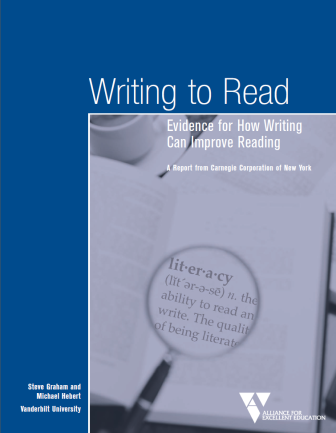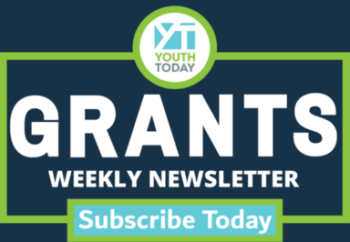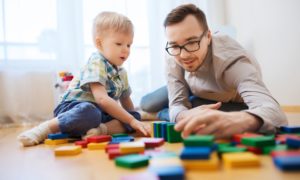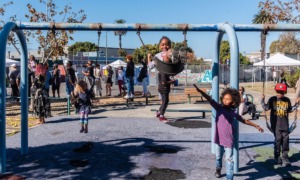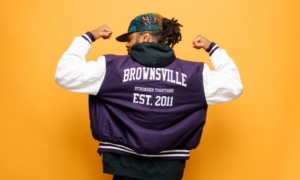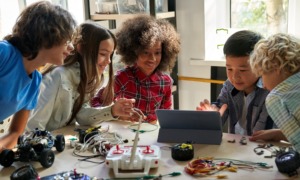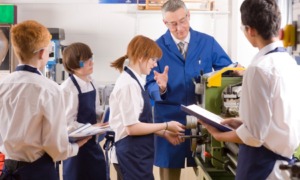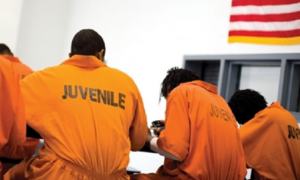 This section of the OST Hub provides information and materials that will help to introduce new reading/writing activities in your program or help to further develop and enhance your current program. For researchers and policymakers, it provides information that will help to understand the larger issues and help to contextualize language and literacy practices and programs in the OST setting.
This section of the OST Hub provides information and materials that will help to introduce new reading/writing activities in your program or help to further develop and enhance your current program. For researchers and policymakers, it provides information that will help to understand the larger issues and help to contextualize language and literacy practices and programs in the OST setting.
This section, Reading & Writing: Articles & Research, is divided into the following resource areas:
- General Articles on Reading and Writing in the OST provides background on the historical roots of providing literacy in OST, and the multiple roles that OST staff and programs can play to support literacy development.
- Integrating Literacy into Other Activities is a section that provides articles on how to integrate literacy into traditional OST offerings, such as the arts and other enrichment activities.
- Teaching Writing in the OST is a section that provides help for one of the most difficult tasks — engaging children and youth in and providing support for writing. Some of the articles focus on gender, such as boys, who are often the most difficult to engage.
Explore & Download These Resources Below
• General Articles on Reading & Writing
Effective Out-of-School Time Reading Programs
Reading instruction does not need to stop with the bell rings. Using out-of-school time can be an effective way to boost academic skills while engaging students outside of the classroom. In this publication, education research lab McREL reviews effective afterschool and summer programs that focus on reading, and identifies the components that make them successful.
Adolescent Literacy Development in Out-of-School Time
A Practitioner’s Guidebook. Final Report from Carnegie Corporation of New York’s Council on Advancing Adolescent Literacy.
In between Work and School: Youth Perspectives of an Urban Afterschool Multimedia Literacy Program
Drawing on data from a yearlong ethnographic project documenting a media arts program housed in an urban comprehensive high school, this article provides youth perspectives on their experience in an afterschool program, addressing in particular the ways in which this arts-based program functioned as a hybrid space between work and school.
Leveraging the Power of Afterschool and Summer Learning for Student Success
This article is an excerpt from the groundbreaking book, Expanding Minds and Opportunities: Leveraging the Power of Afterschool and Summer Learning for Student Success.
The Life-Enhancing Benefits of Reading in Out-of-School Programs
This policy brief by the Afterschool Alliance spotlights the role of reading in effective out-of-school time programs, and describes how reading in OST is a way to promote students’ academic success and bolster their self-confidence and sense of well-being.
Supporting the Literacy Development of Low-Income Children in Afterschool Programs
One of the first national studies of afterschool programs which provide literacy activities for children and youth. Includes a section on challenges of implementing literacy in OST, and a description of exemplary practices.
Why Reading by the End of Third Grade Matters
A KIDS COUNT Special Report from the Annie E. Casey Foundation.
• Integrating Literacy into Other Activities
The Art of Democracy / Democracy as Art: Creative Learning in Afterschool Comic Book Clubs
The paper investigates how comic book clubs can support children and youth’s leadership, civic engagement, and positive youth development.
Civic Connections: Urban Debate and Democracy in Action during Out-of-School Time
This paper examines out-of-school time urban debate leagues, specifically the New York Urban Debate League, and the connection between debate, democracy skill building and civic engagement.
Co-Constructing Space for Literacy and Identity Work With LGBT Youth
School personnel typically ignore the issues of LGBT youth in the academic curriculum and in extracurricular activities. This article explores how OST can provide a safe space for LGBT youth.
“Doing Hair” and Literacy in an Afterschool Reading and Writing Workshop for African-American Adolescent Girls
In the culture of adolescent African-American girls, doing hair is a social practice that represents power, creativity, and sometimes popularity. This article describes a three-month afterschool reading and writing workshop that focused on doing hair.
Many Versions of Masculine: An Exploration of Boys’ Identity Formation through Digital Storytelling in an Afterschool Program
At a time when afterschool programs are under pressure to become extensions of the school day, this research argues for recognition of and support for the different functions such programs can serve when structured as alternative spaces for learning and identity formation.
So You Want to be a Superhero?
This article describes an afterschool program that engaged youth in comic book making as a creative vehicle to explore their identities as well as develop literacy skills.
• Teaching Writing in the OST
Combat Sports Bloggers, Mad Scientist Poets, and Comic Scriptwriters
This articles describes an approach that engages boys in writing during the out-of-school time by allowing them to determine their own topics and by being sensitive to their gendered approaches to writing.
“Writing Is Not Really Something I Do”
This article describes the creation of an afterschool program by an in-school teacher that specificially engages reluctant male writers.
Writing, Technology and Teens
Teens write a lot, but they do not think of their emails, instant and text messages as writing. This study explores teens’ belief in what constitutes good writing.
Writing to Read: Evidence for How Writing
Can Improve Reading
The evidence is clear: writing can be a vehicle for improving reading. In particular, having students write about a text they are reading enhances how well they comprehend it.



